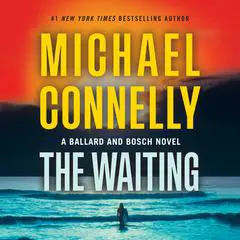 Play Audiobook Sample
Play Audiobook Sample
Elmer Gantry Audiobook
 Play Audiobook Sample
Play Audiobook Sample
Quick Stats About this Audiobook
Total Audiobook Chapters:
Longest Chapter Length:
Shortest Chapter Length:
Average Chapter Length:
Audiobooks by this Author:
Publisher Description
Elmer Gantry is the portrait of a silver-tongued evangelist who rises to power within his church, yet lives a life of hypocrisy, sensuality, and ruthless self-indulgence.
The title character starts out as a greedy, shallow, philandering Baptist minister, turns to evangelism, and eventually becomes the leader of a large Methodist congregation. Throughout the novel, Gantry encounters fellow religious hypocrites. Although often exposed as a fraud, Gantry is never fully discredited.
When Elmer Gantry was first published in 1927, it created a public furor. Now it is considered a landmark in American literature and one of the most penetrating studies of hypocrisy in modern literature. The novel also represents the evangelistic activity of America in the 1920s and people’s attitudes toward it.
Download and start listening now!
“The background of Elmer Gantry is the religious activity of America in evangelistic cirles and the attitudes of the nineteen twenties toward it. The religious life in the United States had fallen into a condition of listless and at the same time enthusiastic decay…What the Lewis novel pictures, in part, is the confusion of…the material and the spiritual and the consequent corruption of both.”
— Mark Schorer, author of Sinclair Lewis: An American Life
Quotes
-
“Elmer Gantry is charismatic without being likable, which makes voicing him a tricky business for Anthony Heald…Heald’s pacing, his accents, [and] his narrative drive are all excellent.”
— AudioFile -
“What always made Lewis’s novels richer than mere satire was the affection he so clearly felt even for the people and institutions he was most eager to expose. As awful as Gantry is, we can’t suppress a sneaking liking for him, and neither can his author…So much a product of its own historic moment, it turns out to be a book for our time as well, and probably for all times.”
— Brooke Allen, author of Twentieth-Century Attitudes
Awards
-
Winner of the Audie AwardAudie Award for Best Literary Fiction
Elmer Gantry Listener Reviews
- — Wanda, 9/28/2010
About Sinclair Lewis
Harry Sinclair Lewis (1885–1951), the son of a country doctor, was born in Sauk Centre, Minnesota. He attended Yale University, where he was editor of the literary magazine, and graduated in 1907. After a few of his stories had appeared in magazines and his first novel, Our Mr. Wrenn (1914), had been published, he was able to write full time. He was awarded the 1926 Pulitzer Prize for Arrowsmith (1925) but refused to accept the honor. However, he accepted the Nobel Prize awarded him in 1930. He was the first American to win the Nobel Prize for Literature.
About Anthony Heald
Anthony Heald, an Audie Award–winning narrator, has earned Tony nominations and an Obie Award for his theater work; appeared in television’s Law & Order, The X-Files, Miami Vice, and Boston Public; and starred as Dr. Frederick Chilton in the 1991 Oscar-winning film The Silence of the Lambs. He has also won numerous AudioFile Earphones Awards for his narrations.


































